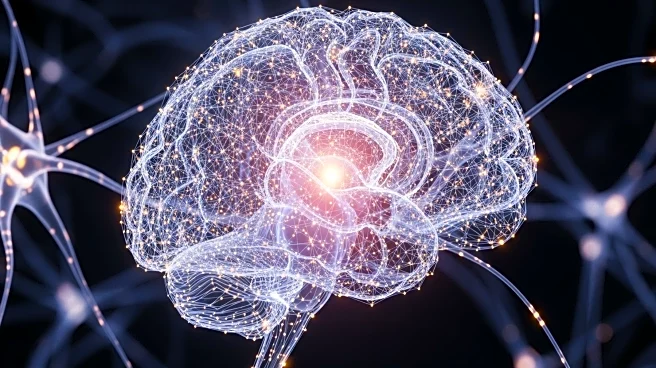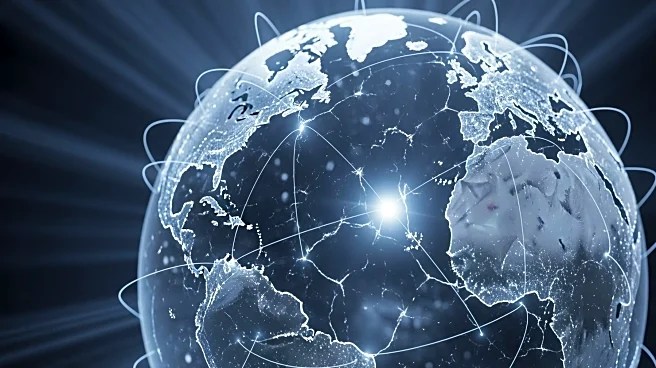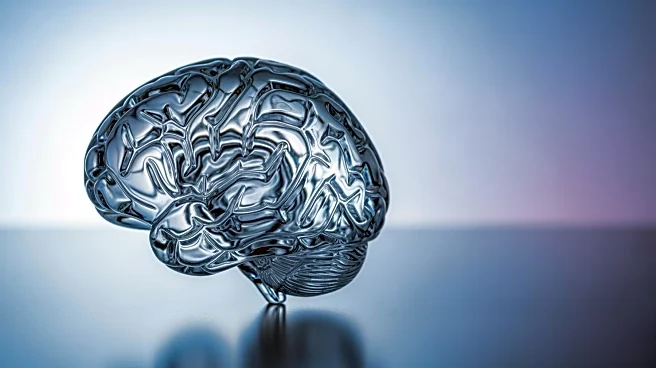What's Happening?
Jocasta Neuroscience is delving into the complexities of consciousness, examining over 350 theories that attempt to explain the origins of human experience. These theories range from materialism, which posits that only physical states are real, to idealism,
where mental states are considered fundamental. The exploration includes diverse perspectives, such as the idea that consciousness could arise from quantum processes or electromagnetic fields in the brain. This comprehensive study aims to map the landscape of consciousness, highlighting the divergent scales and places where consciousness might originate. The research also touches on the implications of these theories for understanding free will, artificial intelligence, and life after death.
Why It's Important?
The exploration of consciousness theories is significant as it challenges existing paradigms in neuroscience and philosophy, potentially reshaping our understanding of human experience. By considering a wide array of theories, Jocasta Neuroscience is opening new avenues for research that could impact fields such as artificial intelligence, where understanding consciousness is crucial for developing truly intelligent systems. The study also has implications for philosophical debates on free will and the nature of reality, influencing how society perceives human agency and the potential for life beyond physical existence.















